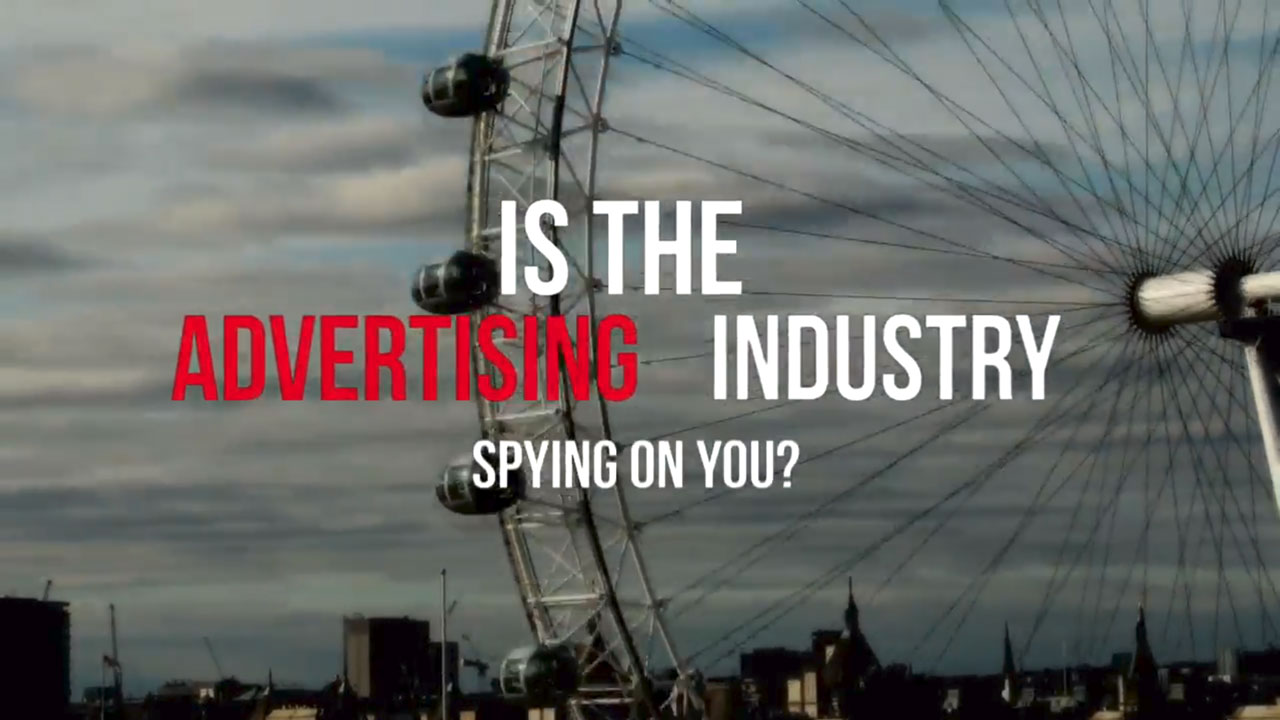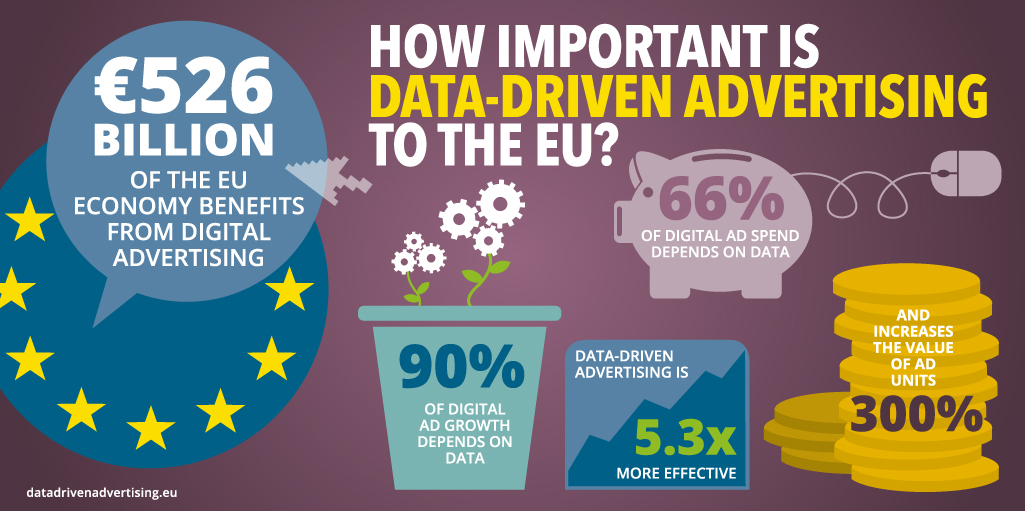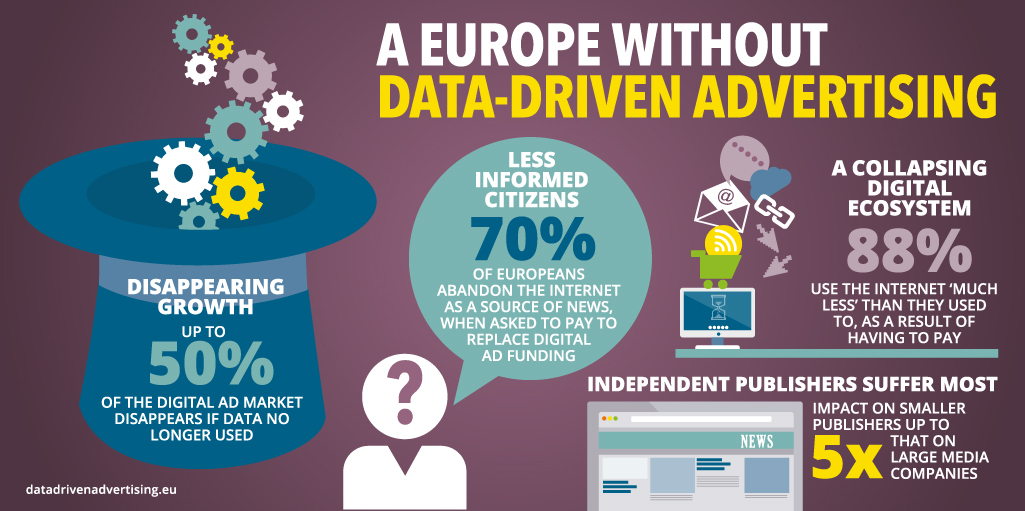
Explore the realities of ePrivacy Regulation in our video documentaries
How data-driven advertising powers the EU
Data-driven advertising is smarter advertising. It’s more relevant, more measurable and more valuable: to consumers, advertisers, publishers and the EU economy as a whole. Smart advertising is what advertisers expect from digital platforms. They expect to be able to deliver their ads to relevant people and to be able to measure how effective they are.
The use of data in advertising has wide-ranging social, cultural and economic impacts for Europe – and on balance, these impacts are overwhelmingly positive. Data-driven advertising defines Europeans’ experience of the internet, the amount of time they spend online, and the range and types of sites that they visit. It plays a vital role in economic growth, lowering barriers to entry and enabling innovation and competition. The latest research and econometric analysis shows that, without the use of data in advertising, the role of the internet would be fundamentally diminished within Europe.


How important is data-driven advertising to Europe?
Because data-driven advertising’s impact is so far-reaching, it can be difficult to quantify. This online resource aims to address that gap and answer the question: how important is data-driven advertising to the EU?
This website uses data from three separate, independent studies into the impact of data-driven advertising. We worked with the research agencies IHS Markit and GfK to explore whether digital advertising needs data, how much it contributes to the EU economy and internet accessibility, and Europeans’ attitudes to data, advertising and ad-supported content.







